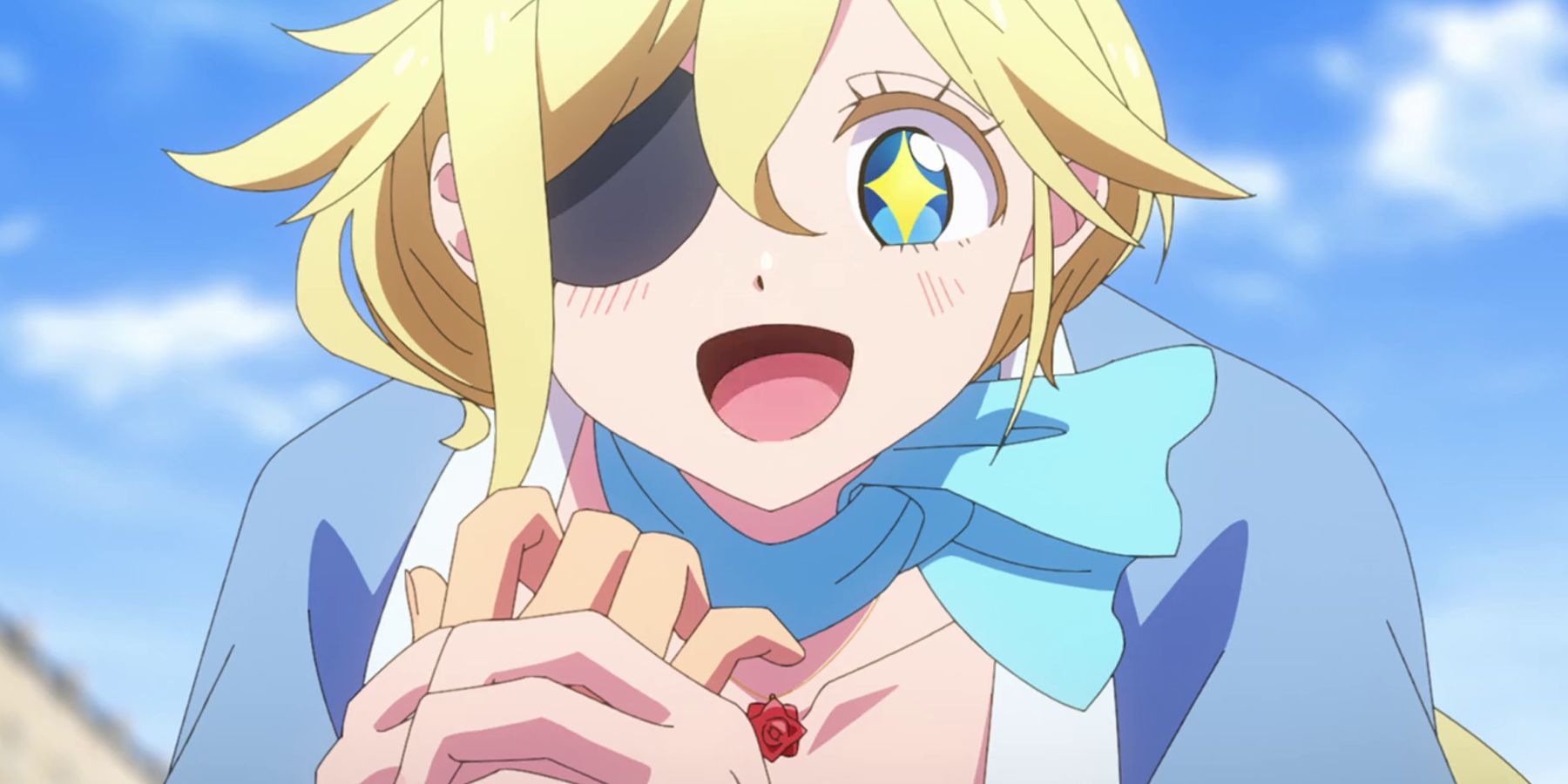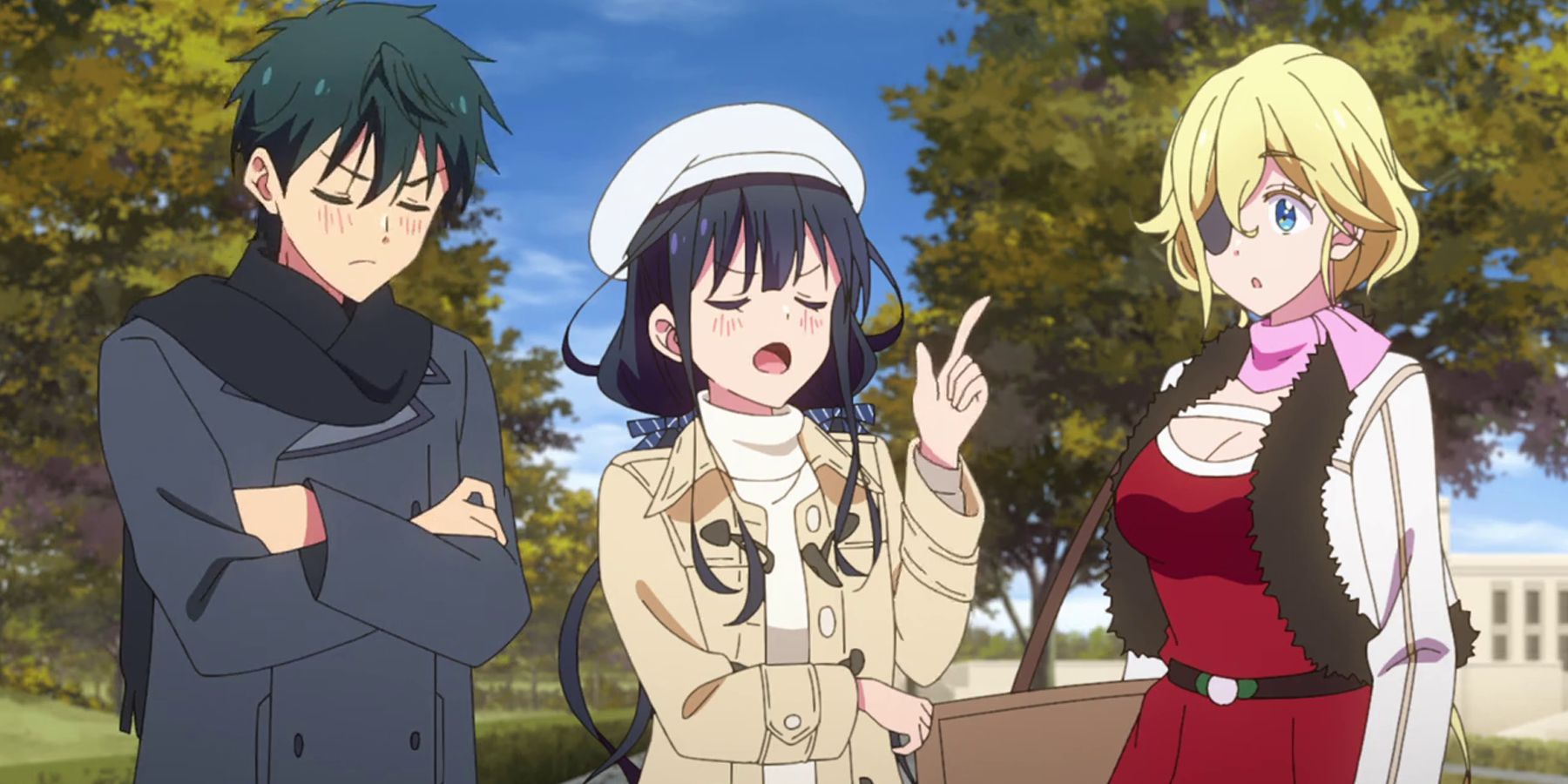
The Ultimate Guide to Masamune-kun's Revenge R - Unraveling the Magic of Japanese Rom-Coms!

Masamune-kun's Revenge R takes a captivating turn as Masamune and Aki encounter a quirky local, delving into the intriguing realm of cultural differences Explore the heartwarming essence of Japanese rom-coms with a twist, where Muriel's story may surpass Masamune's own journey
Attention: Spoilers for the first episode of Masamune-kun's Revenge R, "The Wee Parisian Mademoiselle," are included below. The episode is currently available for streaming on Crunchyroll.
The narrative of Masamune-kun's Revenge centers around a high school student named Masamune Makabe. During his childhood, he endured relentless bullying from his crush, Adagaki Aki, due to his weight. Determined to change, Masamune diligently works on transforming his physique over the years. As fate would have it, Masamune ends up attending the same school as Aki, who is oblivious to his true identity. Now, his plan is to make her fall in love with him and then reject her in the most humiliating manner possible. This scheme is his way of seeking revenge, or so he believes.
The first season concluded with minimal progress in Aki and Masamune’s romantic relationship. Presently, the entire class is embarking on a study trip to Paris, famously known as the city of love. During their visit, Aki and Masamune unexpectedly encounter Muriel Besson, a Parisian otaku aspiring to become a mangaka. Eager for guidance, she seeks their advice on crafting a captivating rom-com manga. This is when the conversation takes an intriguing turn.
Cultural Difference
We entered into Masamune-kun’s Revenge R anticipating a romantic comedy with a straightforward plot. A show that doesn't require much mental energy. Essentially, a popcorn anime. However, we were surprisingly left contemplating some intriguing ideas after the first episode.
When Aki and Masamune read Muriel's romantic comedy manga, they find the story a little odd. Not because the artwork or writing is poor, but because they have fundamentally different perspectives on romance stories. According to Masamune, who considers himself an expert in shoujo manga, a great romantic comedy manga requires the writer to be a skilled teaser.
Excitedly, he states, "When it comes to rom-coms, once both characters develop feelings for each other, 80% of the story is complete! Tease! Tease until there's no teasing left!" Muriel, on the other hand, innocently suggests that if the characters like each other, why not express their feelings openly? Let them confess their emotions, let them share kisses, let them openly display their affection. Needless to say, neither of them is inherently incorrect; it's simply a matter of cultural differences.
Examining The Essence Of a Rom-Com
Japanese people are generally reserved, particularly when it comes to expressing love and sensitive emotions. Conversely, Europeans and Westerners tend to be more open in expressing their feelings. This inherent difference influences how these two groups portray romantic stories, particularly in mainstream fiction. However, it is important to note that there are always exceptions and deviations from these generalizations when exploring different cultures and individuals.
According to Masamune, Japanese romantic comedies and the romance genre in general tend to focus on the love confession and the commitment to a serious relationship as the ultimate goal. The events leading up to this pivotal moment serve as the core of the story, where romance and comedy intertwine. As Masamune explains, once the characters confess their love explicitly, it constitutes around 80% of the story. This pattern can be observed in classic anime like Fruit Basket, as well as in more recent works such as Kaguya-sama: Love is War.
Muriel’s Story Can Be More Interesting Than Masamune-kun’s Revenge
: In contrast, Western romantic comedies, and to some extent, regular romance stories, often view the love confession as a mere component of a larger narrative. According to Muriel, once the characters acknowledge their love for each other and express it sincerely, the story can introduce various obstacles to test their relationship's strength or enhance the dynamics between them. This is evident in beloved Disney classics like Cinderella and more recent films like Entergalactic.The anime series, Masamune-kun’s Revenge, follows the typical structure of a Japanese romantic comedy. In this episode, Masamune cleverly acknowledges this narrative pattern, adding a touch of self-awareness. The story unfolds with a series of teasing moments, gradually building up to the characters confessing their love. This pivotal moment marks around 80% completion of the overall plot. As mentioned earlier, this anime falls into the category of enjoyable entertainment that doesn't require much mental exertion – a delightful treat to indulge in occasionally.
However, the story in Muriel's possession has the potential to be far more captivating than Masamune-kun's Revenge. It is a refreshing romantic comedy manga with a European perspective. Imagine the delightful blend of heartwarming moments and playful antics found in typical rom-com manga, but with a more liberated and dynamic narrative style reminiscent of Western rom-coms.
When thinking about similar concepts, two stories instantly come to mind: Horimiya and Wotakoi: Love is Hard for Otaku. Both of these tales are fascinating and thoroughly enjoyable. Hopefully, we will see more stories like them in the future.











